A study of 746 older people followed for six years identifies a “microbial signature” associated with this dietary pattern and more favourable cognitive ageing
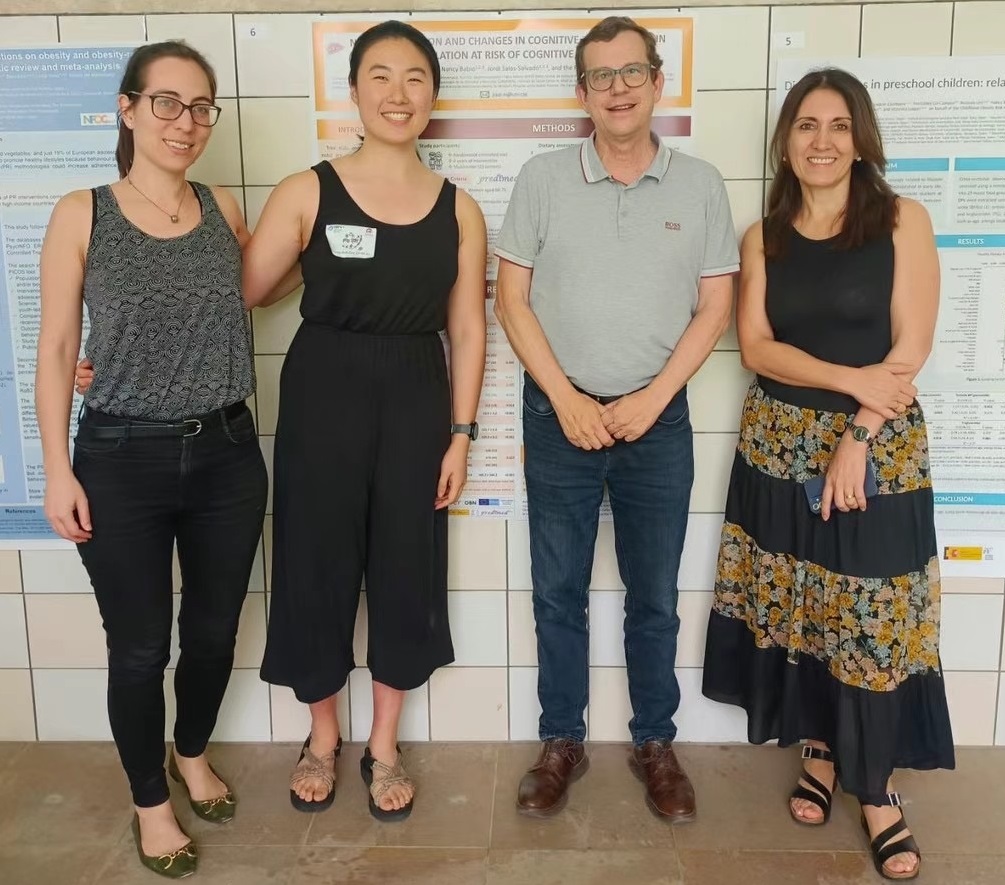
Following a Mediterranean diet not only benefits the heart and metabolism, but could also help preserve cognitive function as ageing progresses. This is according to research led by the Rovira i Virgili University (URV), the IISPV and CIBERobn, which shows how this dietary pattern is associated with a healthier gut microbiota and slower cognitive decline in older adults with overweight or obesity and metabolic syndrome.
The study, published in the journal BMC Medicine, analysed data from 746 older adults at high cardiometabolic risk, who were followed for six years. The research team assessed adherence to the Mediterranean diet, the composition of the gut microbiota and the progression of cognitive function over time. The results indicate that those who most faithfully followed this dietary pattern had a more favourable gut microbiota and a more positive cognitive trajectory.
One of the most innovative aspects of the work is the identification of a “microbial fingerprint” characteristic of the Mediterranean diet. This new biomarker, based on the presence and abundance of certain gut bacteria associated with this type of diet, is also linked to slower cognitive decline. According to the authors, this finding provides new clues about the biological mechanisms that explain the benefits of the Mediterranean diet on the brain.
Eix intestí-cervell
Cognitive function includes abilities such as memory, attention, learning, language and decision-making, which are essential for maintaining autonomy in everyday life. In parallel, the gut microbiota is composed of trillions of bacteria that are involved in key processes such as digestion, immunity and the production of substances that influence the body’s functioning. In recent years, research has revealed the existence of the so-called gut-brain axis, a bidirectional communication system through which intestinal microorganisms can produce compounds that reach the brain and affect its functioning.
“Aquest estudi demostra que la microbiota intestinal és una peça clau en els beneficis cognitius de la dieta mediterrània”, explica Jiaqi Ni, primera autora del treball i investigadora predoctoral de la URV. “Els nostres resultats suggereixen que alguns bacteris intestinals associats a una major adherència a aquest patró alimentari podrien protegir davant del deteriorament cognitiu”.
En la mateixa línia, el catedràtic de la URV Jordi Salas-Salvadó, director de l’estudi, destaca que “identificar una empremta microbiana associada a la dieta mediterrània obre noves oportunitats per dissenyar intervencions nutricionals o microbianes orientades a promoure un envelliment cognitiu saludable”. De la seva banda, les investigadores del Departament de Bioquímica i Biotecnologia de la URV Nancy Babio i Stephanie K. Nishi subratllen la rellevància dels resultats en un context d’envelliment poblacional i augment de la prevalença de la demència, i apunten que millorar la qualitat de la dieta és una estratègia senzilla i accessible amb beneficis reals per a la salut cerebral.
El treball ha estat liderat per la investigadora predoctoral Jiaqi Ni i dirigit per Jordi Salas-Salvadó, Nancy Babio i Stephanie K. Nishi, membres de la Unitat de Nutrició Humana del Departament de Bioquímica i Biotecnologia de la URV, amb la col·laboració d’investigadors del consorci PREDIMED-Plus. L’estudi s’emmarca en una recerca multicèntrica que contribueix a aprofundir en la relació entre alimentació, microbiota intestinal i salut cerebral al llarg de l’envelliment.
Referència bibliogràfica: Ni J, Hernández-Cacho A, Nishi SK, Babio N, Belzer C, Konstati P, Vioque J, Corella D, Castañer O, Vidal J, Moreno-Indias I, Torres-Collado L, Coltell O, Fitó M, Ruiz-Canela M, Wang DD, Tinahones FJ, Salas-Salvadó J. Mediterranean diet, gut microbiota, and cognitive decline in older adults with obesity/overweight and metabolic syndrome: a prospective cohort study. BMC Med. 2025 Dec 1;23(1):669. doi: 10.1186/s12916-025-04488-y.
Maternal nutrition is essential for babies’ cognitive development, but some nutrients have received less attention in scientific research. Vitamin K, mainly known for its role in blood clotting, is one example. Although it is found in leafy green vegetables and vegetable oils, and is involved in processes related to glucose metabolism, insulin, and antioxidant and anti-inflammatory activity, its possible influence on children’s neurological development had not been explored until now.
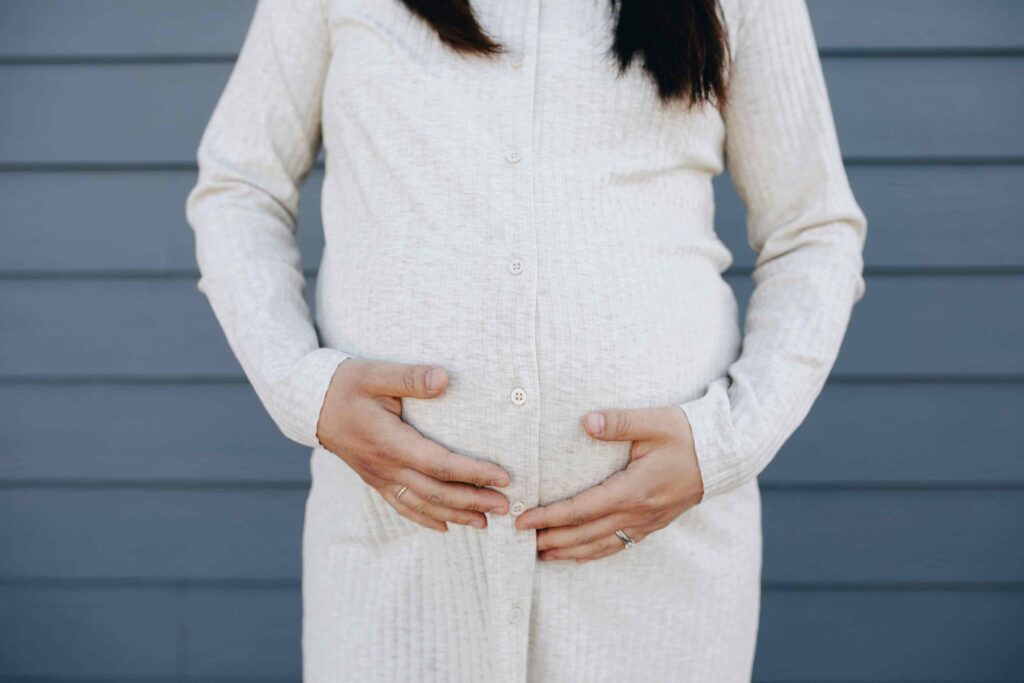
A new study led by teams from the Universitat Rovira i Virgili (URV) and IRB CatSud (formerly IISPV), in collaboration with ISGlobal, provides the first evidence linking maternal intake of vitamin K1 (phylloquinone) with children’s neurodevelopment.
The research was directed by Mònica Bulló, head of the Nutrition and Metabolic Health group at URV and the TecnATox research center, and by Jordi Júlvez, researcher at IRB CatSud. The results have been published in the scientific journal Pediatric Research.
The study analysed 1,080 pregnant women and their children from the BiSC cohort. To estimate vitamin K intake, participants completed a food frequency questionnaire with 114 items. Later, several areas of early childhood neurodevelopment —cognition, socioemotional and physical development, communication, and behaviour— were evaluated at different stages.
The data show that higher vitamin K intake during pregnancy is associated with better overall development in children, as well as specific improvements in cognitive abilities and physical development. The study also suggests that doubling the current vitamin K recommendations for the general population could be linked to better communication skills and expressive language. Although this is an observational study and cannot prove direct causality, the research team believes it opens new paths to deepen our understanding of the role of maternal nutrition in neurocognitive development.
“The evidence we found suggests that vitamin K may play a beneficial role, and this could lead to future dietary recommendations specifically for pregnant women, with the aim of promoting optimal cognitive development in early childhood,” explains URV professor Mònica Bulló.
Bibliographic reference:
Mateu-Fabregat, J., Panisello, L., Novau-Ferré, N. et al. Maternal dietary phylloquinone intake (vitamin K1) and early childhood neurodevelopment. Pediatr Res (2025). https://doi.org/10.1038/s41390-025-04543-7
• The IUNS ACTIVATOR project will analyse the gaps in nutrition research in Asia and how these gaps affect health policies
• The initiative aims to give a stronger voice to the Asian continent in scientific literature and to prepare it to face current nutritional challenges
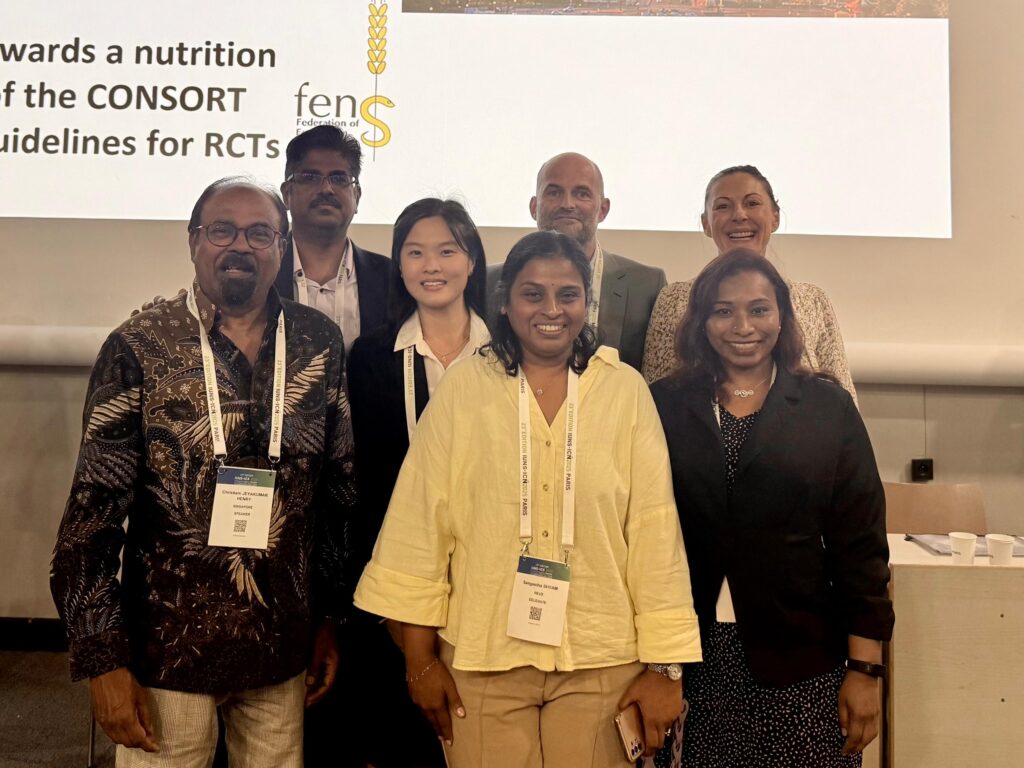
A project led by the Institut de Recerca Biomèdica Catalunya Sud (Southern Catalonia Biomedical Research Institute – IRB CatSud, formerly IISPV) and Universitat Rovira i Virgili (URV) will assess the current situation of nutrition research in Asia, identifying the main gaps and needs in this field. This work is supported by a 5,000 dollar grant from the International Union of Nutritional Sciences (IUNS).
With this funding, the IUNS ACTIVATOR team will work over the next four years to evaluate nutrition research, reflect on how it matches regional priorities, and explore its impact on public health policies. The project will also focus on encouraging efforts to produce relevant scientific evidence at regional level, aiming to improve people’s health through mentoring and the involvement of key stakeholders.
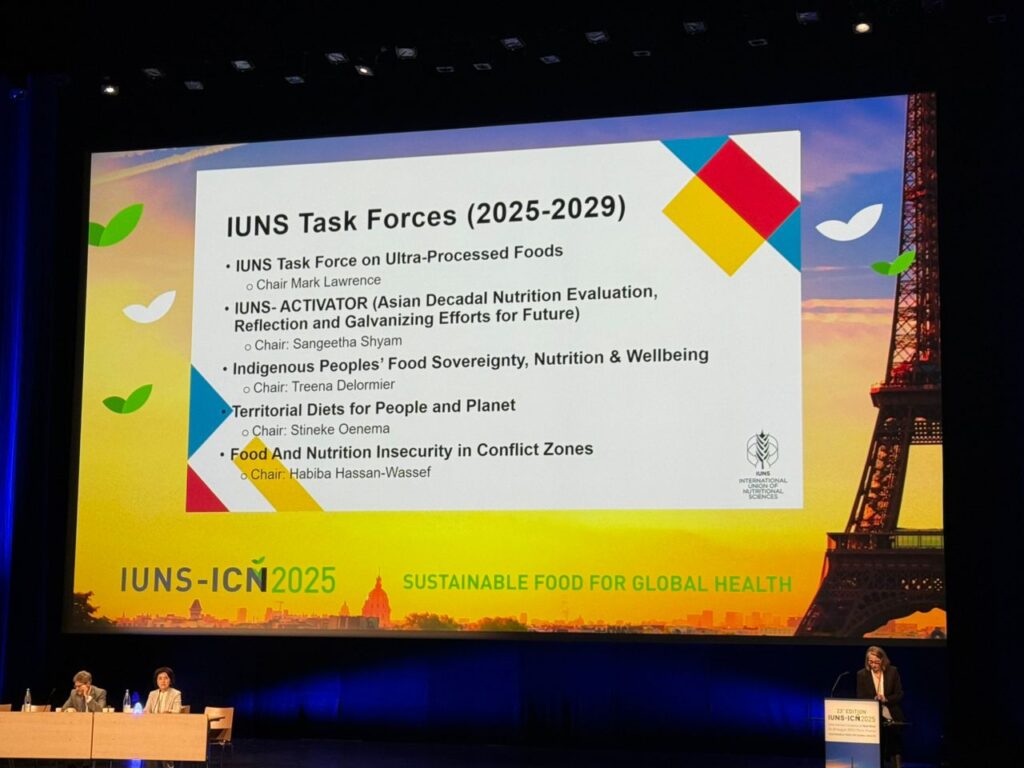
“Carrying out this study is important because Asian countries are still underrepresented in global scientific literature. It is essential to identify their needs in the field of nutrition to understand whether research in Asia is ready to face its specific challenges, especially during a nutritional transition and the growing burden of non communicable diseases,” says Sangeetha Shyam, IISPV URV researcher, involved in the IUNS ACTIVATOR project: ‘Asian Decadal Nutrition Assessment, Reflection and Activation of Efforts for the Future’.
The project team includes 26 researchers from 13 countries in Asia and Europe, with expertise in nutrition, meta research and scientific communication. Another goal of the study is to involve young researchers to ensure the relevance and long term sustainability of the proposed solutions.
For people who smoke 20 or more cigarettes a day, the risk doubles. These are the findings of a study led by the Human Nutrition Unit at URV.
Smoking significantly increases the risk of developing type 2 diabetes. However, drinking alcohol—even in small amounts—does not offer any protection against this disease, despite what some previous studies suggested. This has been confirmed by a new international study led by Indira Paz-Graniel, a researcher at the Human Nutrition Unit of Universitat Rovira i Virgili (URV), in collaboration with the Nutritional Epidemiology Research team from Université Sorbonne Paris Nord (France).
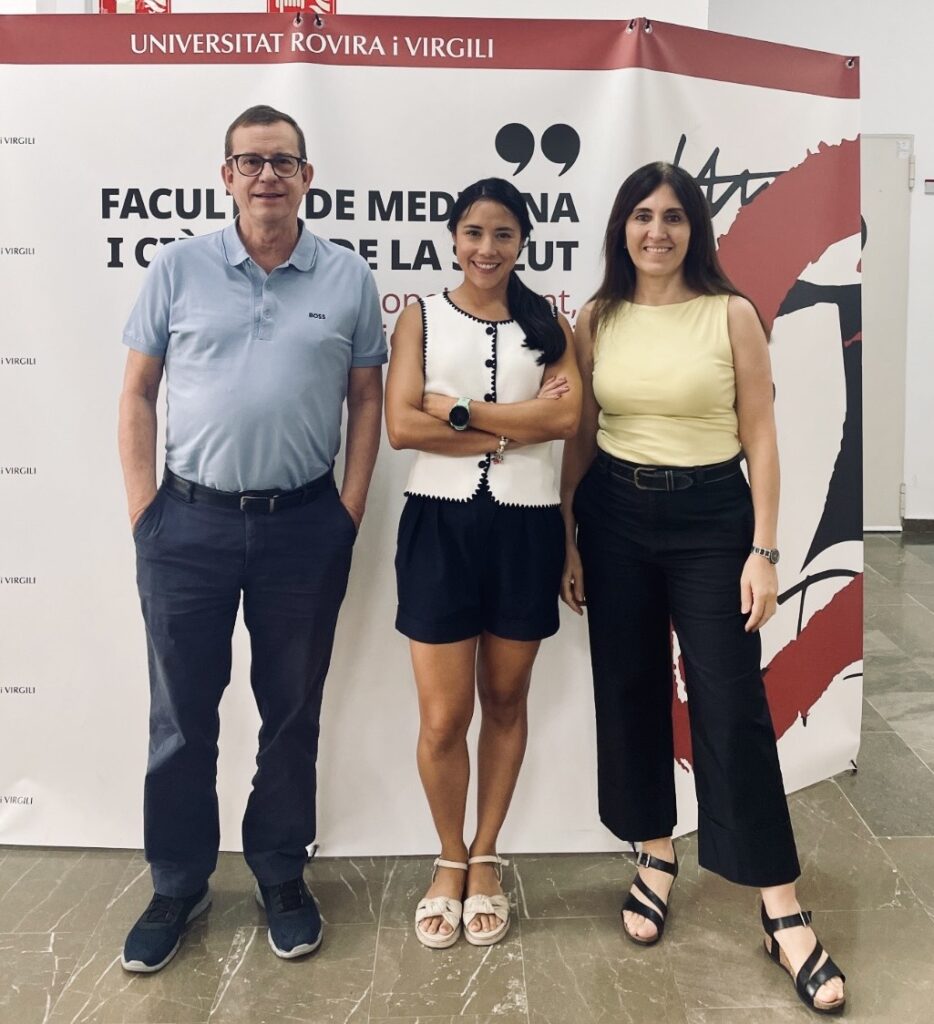
The research studied the combined effects of tobacco and alcohol on the development of type 2 diabetes, a topic that had not been explored much until now. The goal was to find out whether both habits, beyond their individual impact, could have a combined effect on the risk of getting the disease.
To do this, data from more than 110,000 participants in the NutriNet-Santé cohort—one of the largest public health studies in Europe—were used. Over an average follow-up of 7.5 years, 1,175 new cases of type 2 diabetes were diagnosed.
The results show that people who smoke or have smoked at some point have a 25% higher risk of developing type 2 diabetes compared to those who have never smoked. The risk is especially high for those who smoke 20 or more cigarettes a day, as they are twice as likely to develop the disease compared to light or moderate smokers.
The research team also found that low or moderate alcohol consumption was not linked to any protective effect against type 2 diabetes. These findings go against previous studies that suggested drinking one glass of wine a day—or the equivalent—could reduce the risk of developing the disease.
When the combined use of tobacco and alcohol was analyzed, no additional increase in risk was found. This suggests that, at least in the studied population, both habits do not act together to raise the risk of diabetes.
“We know that smoking is a clear risk factor, but we were surprised to see that alcohol alone did not change the risk of diabetes,” said Indira Paz-Graniel. However, she warned that the results should be interpreted with caution, since the NutriNet-Santé cohort is mostly made up of women with a high level of education and healthy lifestyles. “More studies in diverse populations are needed to better understand the interaction between alcohol and nicotine,” she added.
The study also included Professor Jordi Salas-Salvadó, director of the Human Nutrition Unit at URV, and Professor Nancy Babio. Both are members of CIBERobn and the Pere Virgili Health Research Institute (IISPV), along with the lead researcher.
The results were published in the American Journal of Preventive Medicine (August 2025) and presented at the International Congress of Nutrition organized by the International Union of Nutritional Sciences (IUNS), recently held in Paris.
Reference: Paz-Graniel I, Kose J, Duquenne P, et al. Alcohol, smoking and their synergy as risk factors for incident Type 2 Diabetes. American Journal of Preventive Medicine. 2025 Jul 31:108011. doi:10.1016/j.amepre.2025.108011
Seven researchers spoke about studies in health, energy and the environment, and their impact on everyday life. This Friday afternoon and Saturday morning, a science workshop fair will take place at Corsini Square in Tarragona, the main event of the Researchers’ Night
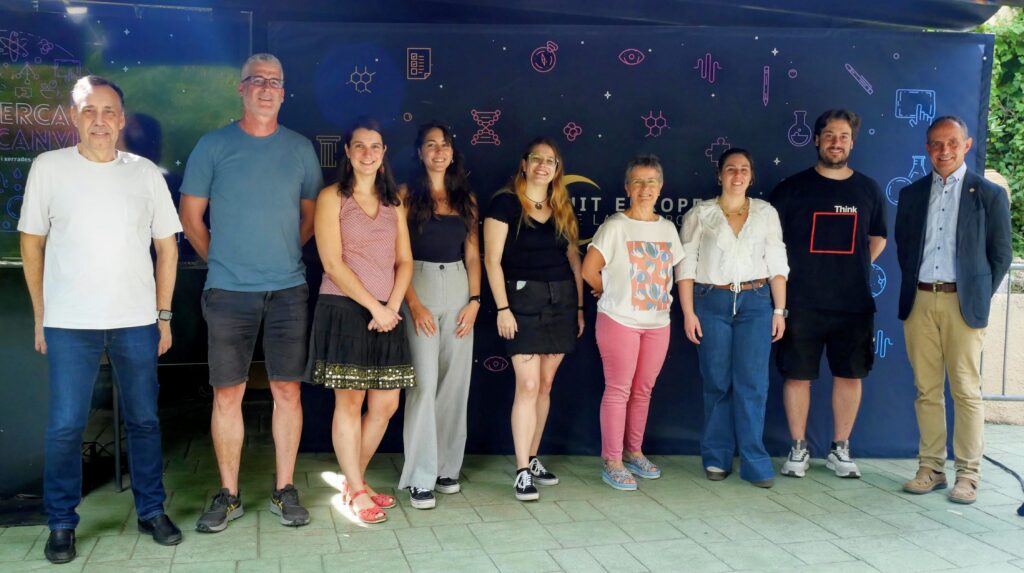
This Saturday, Racó de la Palma in Reus became a centre of scientific knowledge during the micro-talks “Research for Change”, a pre-event of the European Researchers’ Night attended by around eighty people. The event, organised by the Pere Virgili Health Research Institute (IISPV) with support from the Rovira i Virgili University (URV), brought together seven researchers from different local research centres who shared innovative advances in health, energy and environmental topics.
With a dynamic and informative format, each talk lasted ten minutes and explained, in a practical way, the results of scientific studies and how they affect people’s lives. For example, Cèlia Uroz, a researcher from URV, said that people ingest 20,000 microplastic particles per year, which is equal to one credit card per week, and spoke about their effects on the intestine. Marta Llorens, from the Catalan Institute of Chemical Research (ICIQ), explained how antibiotics work in the body and why it is important to take them carefully and follow the doctor’s instructions.
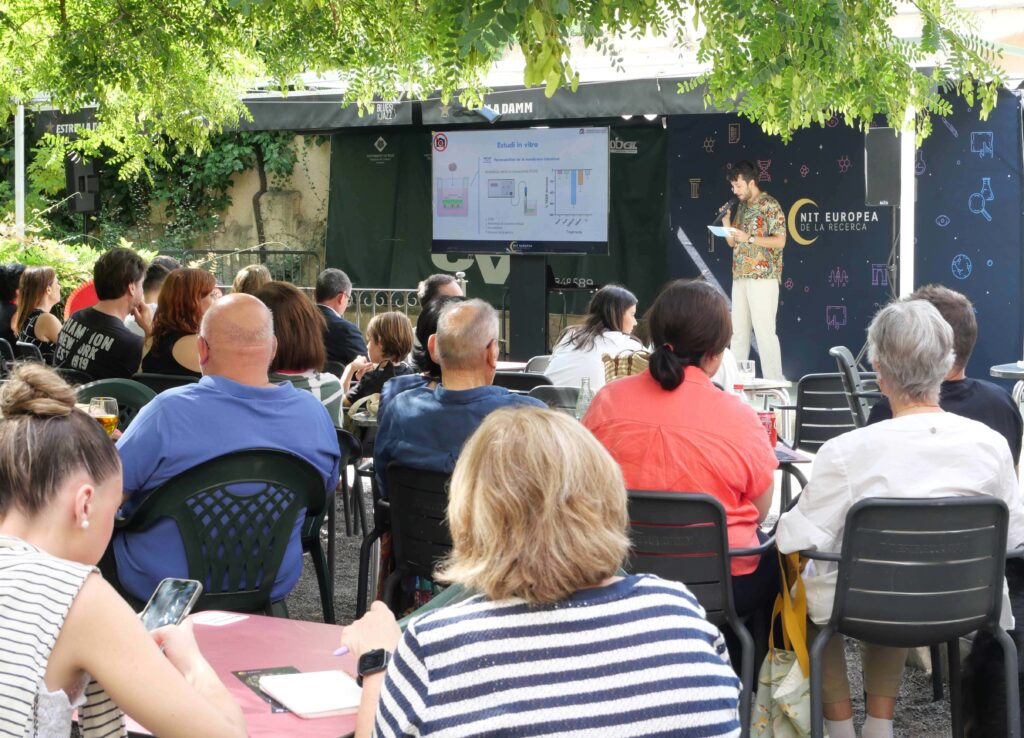
In the field of mental health, Elisabet Vilella, researcher at IISPV and the Pere Mata Institute, said that one in four people suffers from a mental health problem during their lifetime. She also talked about how mental health issues and psychiatric disorders can vary depending on age or gender.
The micro-talks highlighted the value of local research and its direct impact on daily life. There was also good interaction with the audience, who had the chance to ask questions to the researchers about the topics discussed.
The European Research Night events continue
These micro-talks were a prelude to European Research Night, an educational initiative centered around a science fair, which will take place on the afternoon of September 26 and the morning of September 27 in Tarragona’s Plaza Corsini, with the participation of more than 200 researchers from the URV and research institutes. Another preliminary activity is the family workshop “Much more than aesthetics,” on how obesity and diabetes affect the body, which will take place at the Viding Sant Jordi sports center in Tarragona.
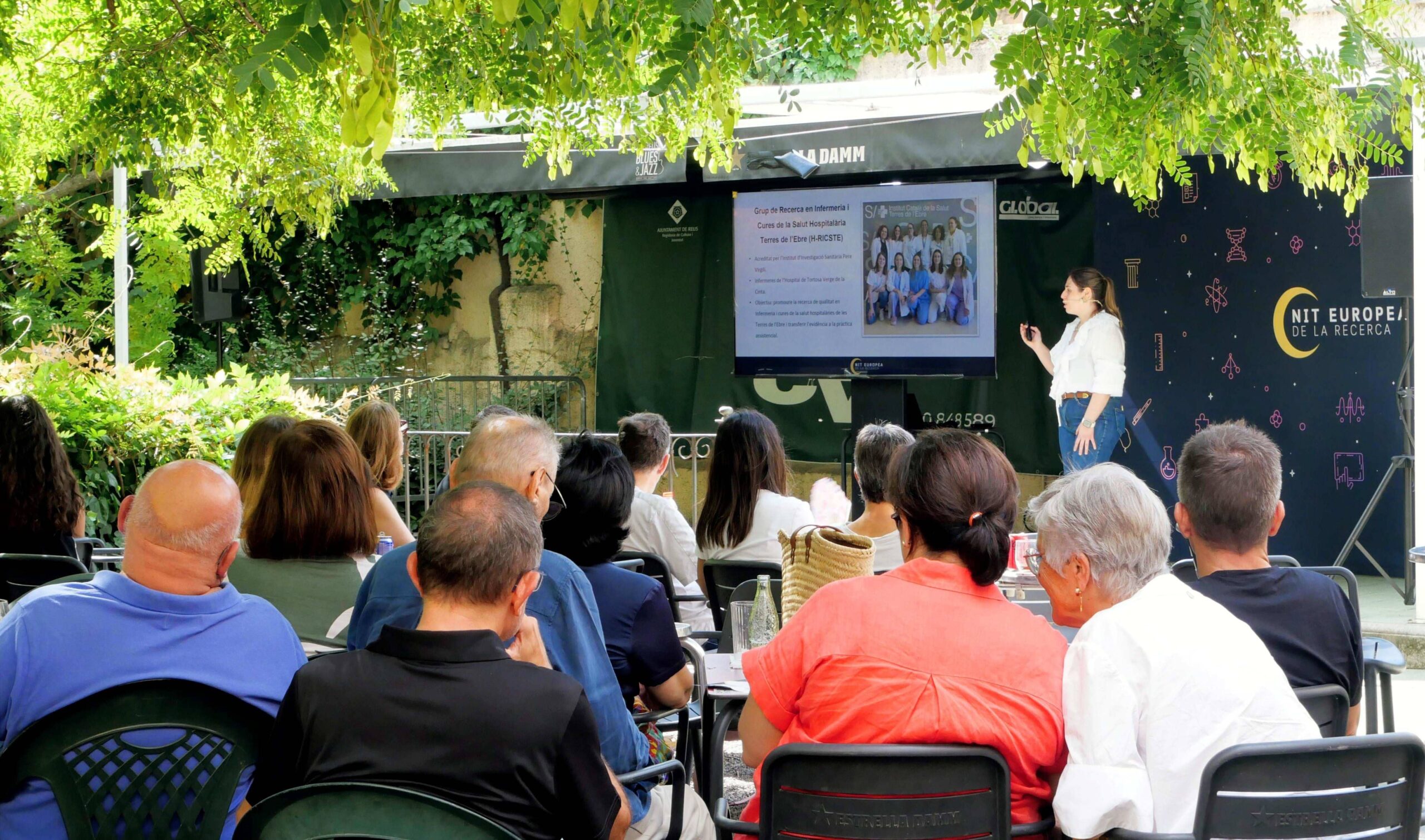
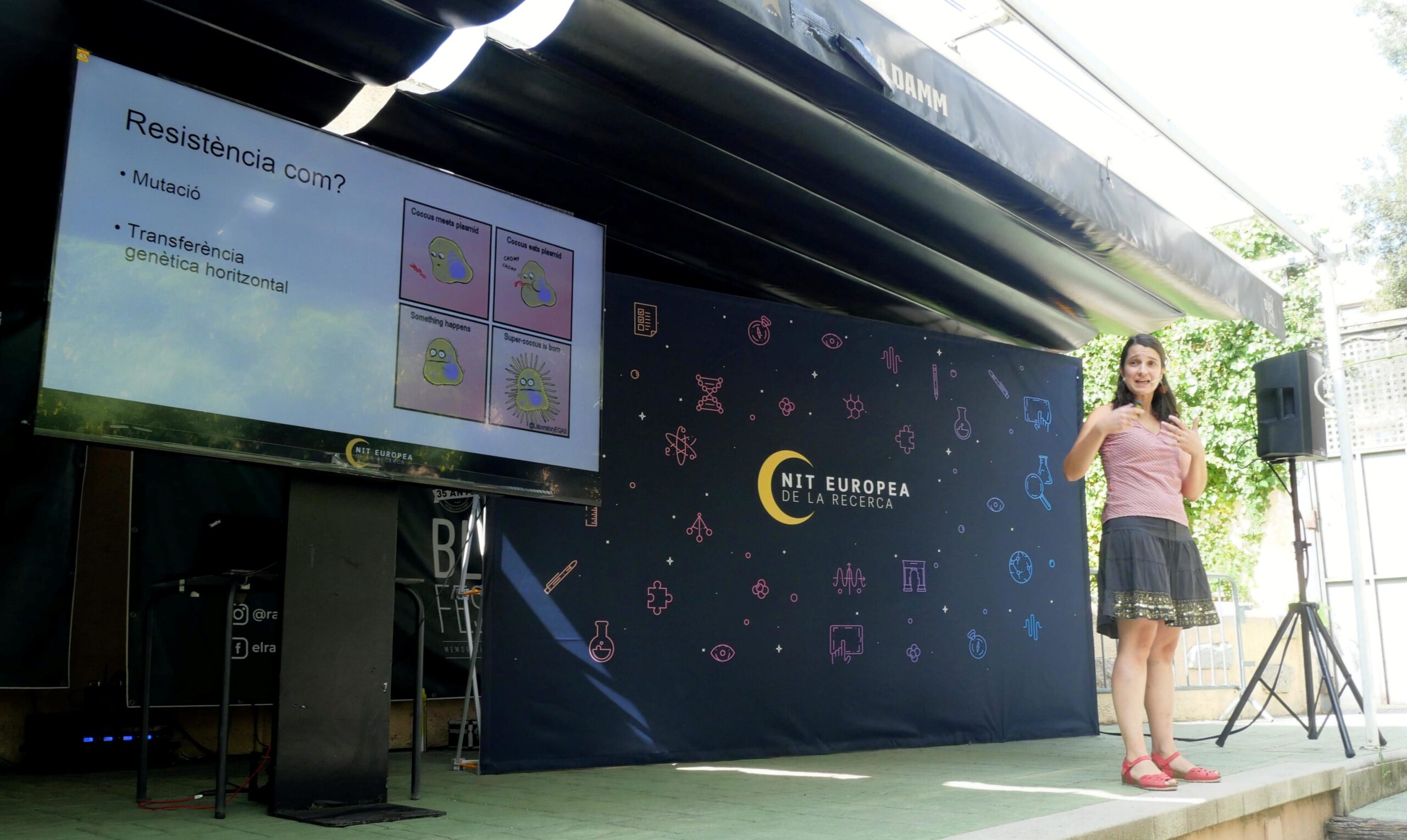
It will also visit secondary schools in the Tarragona area through informative talks and will return once again to Terres de l’Ebre with a science workshop fair to be held on October 3 in Tortosa’s Town Hall Square.
European Research Night is a major educational event held simultaneously in more than 300 European cities with the aim of bringing science closer to the public. In the Tarragona area, the URV has been coordinating the event since 2018, with a program that attracts thousands of people every year.
European Research Night is supported by the European Union’s Horizon Europe program and the collaboration of a consortium of Catalan universities and public institutions. The full program can be found at tarragona.nitdelarecerca.cat.
With a kick-off in Oslo, today marks the start of CancerWatch, a new EU Joint Action that will transform how Europe collects, harmonizes, and uses cancer data. Coordinated by the Norwegian Institute of Public Health and involving 92 partner organisations from 29 countries, CancerWatch will enhance the quality, comparability, and timeliness of data from population-based cancer registries (PBCRs) across Europe.
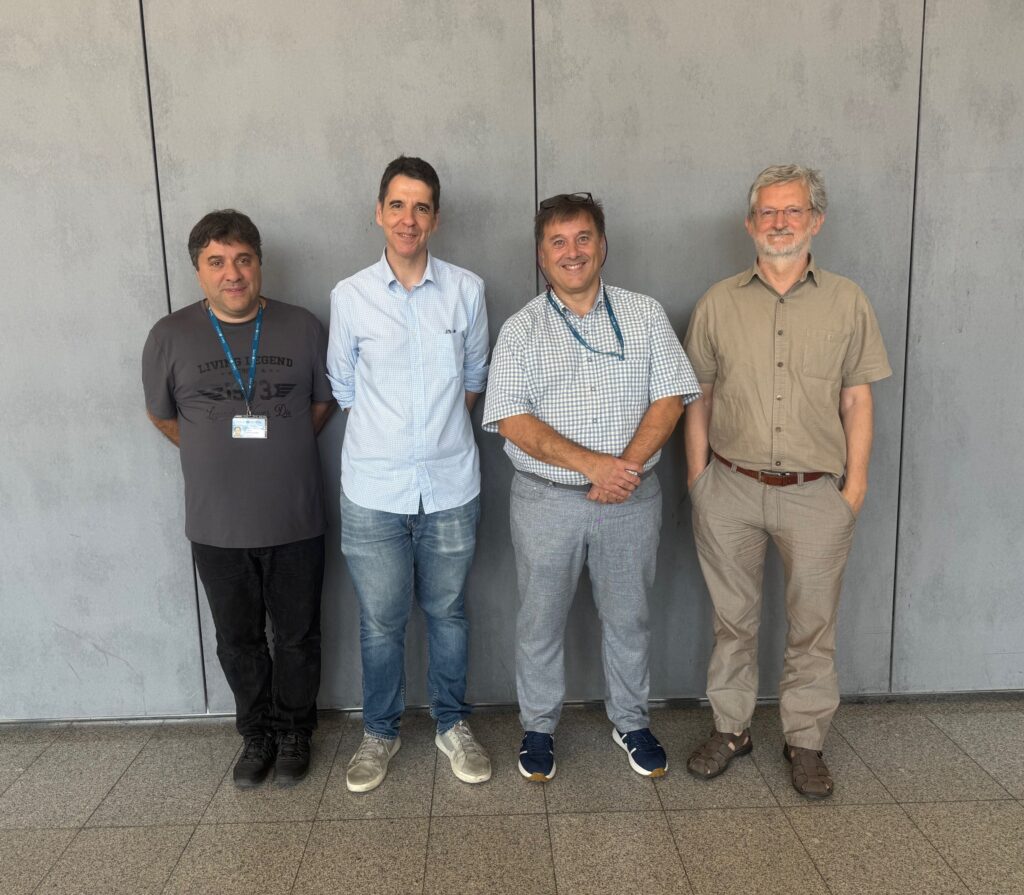
Accurate, complete, and up-to-date cancer data are essential for monitoring trends, identifying inequalities, and evaluating the impact of prevention, early detection, and treatment programmes, as well as Quality of Life and survival rates. CancerWatch will ensure that high-quality data are available to the European Cancer Information System (ECIS), which plays a central role in Europe’s Beating Cancer Plan and the European Cancer Inequalities Registry.
Why it matters
At present, cancer data across Europe vary in quality, coverage, and timeliness. Some regions lack full registry coverage, while others face delays of more than two years before data can be shared. CancerWatch will:
A pan-European effort
CancerWatch unites national cancer registries, public health institutes, research organisations, and ministries of health in a coordinated effort to strengthen Europe’s cancer intelligence. The Joint Action will deliver new tools, shared methodologies, and a roadmap for future cancer indicators, while also identifying opportunities to expand registry coverage into currently uncovered regions.
“By improving the quality and timeliness of Europe’s cancer data, CancerWatch will help ensure that policies and research are based on the best possible evidence – ultimately saving lives and enhancing quality of life for cancer survivors,” says Giske Ursin, Project Coordinator, Norwegian Institute of Public Health.
“Better data means better cancer control. With CancerWatch, we are building the foundations for more effective prevention, diagnosis, treatment, and equitable access to care across Europe,” adds Gijs Geleijnse, Scientific Coordinator, Norwegian Institute of Public Health.
Philippe Roux, Head of Unit for Cancer, health in all policies at the European Commission’s Directorate General for Health and Food Safety emphasizes the importance of CancerWatch. “The European Cancer Inequalities Registry (ECIR) is a vital policy instrument that helps EU Member States identify inequalities in cancer prevention, care, and outcomes, and the areas that can be improved. I strongly encourage all countries and stakeholders to use it. At its core, the ECIR relies on high-quality, population-based cancer data. Through the CancerWatch Joint Action, we will strengthen this foundation and deliver timely insights to reduce cancer inequalities across Europe.”
Background
Population-based cancer registries have been the backbone of cancer surveillance in Europe for decades, enabling countries to track incidence, mortality, and survival. However, differences in legal frameworks, interoperability, and resources mean that data completeness and timeliness vary widely. CancerWatch builds on the work of the European Network of Cancer Registries (ENCR), the Joint Research Centre (JRC), and international partners such as the International Agency for Research on Cancer (IARC), aligning efforts to deliver faster, more reliable insights.
About the project
For more information, visit: www.encr.eu/CancerWatch
The Clinical Research Unit (UIC) will allow clinical trials of medicines to be carried out on patients, from the most experimental phase to the final stage when their use is authorized
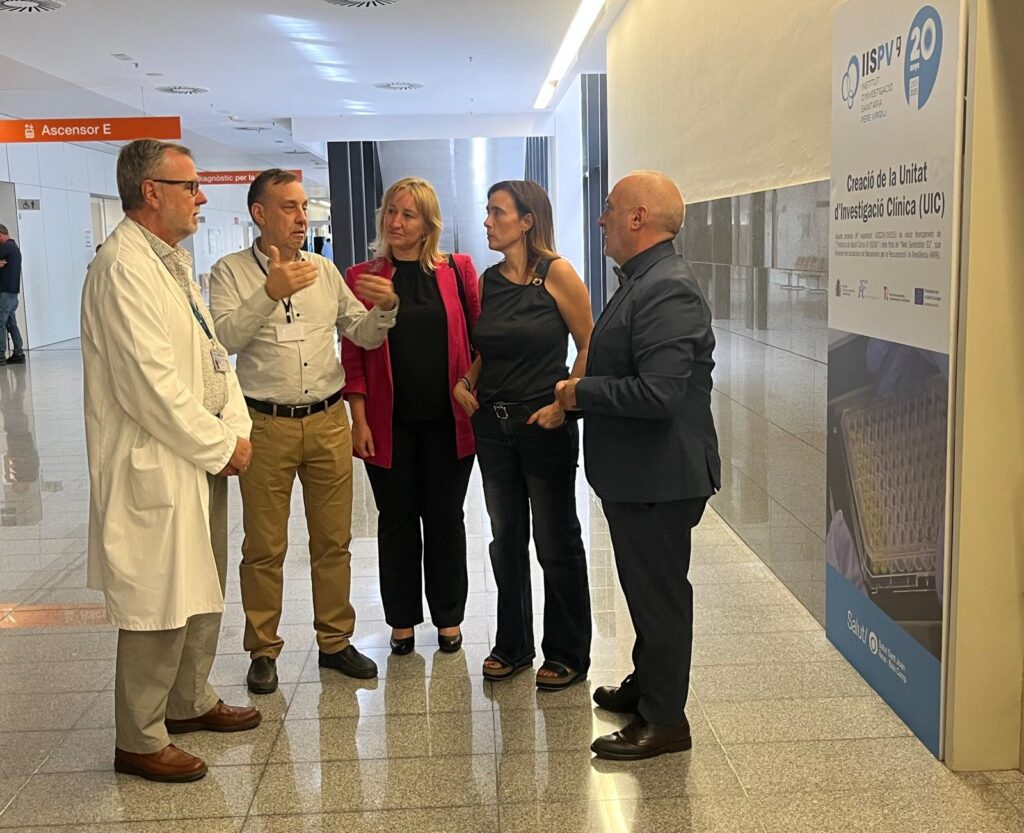
The Secretary of State for Science, Innovation and Universities, Juan Cruz Cigudosa, visited the facilities of the Pere Virgili Health Research Institute (IISPV), located in the Sant Joan University Hospital in Reus. The purpose of the visit was to learn about the development of the new Clinical Research Unit (UIC), a facility that will make it possible to carry out clinical trials with medicines on local patients in all phases—from phase 1, the most experimental, to phase 4, the final stage after which the medicine is approved for use. The CRU will occupy 500 m² and will be located inside the Sant Joan University Hospital in Reus. Its construction is supported by €4,300,000 in funding from the Carlos III Health Institute, the leading biomedical research organization under the Ministry of Science, Innovation and Universities.
During the visit, the Secretary of State was accompanied by the Government’s Deputy Representative in Tarragona, Elisabet Romero; the Mayor of Reus, Sandra Guaita; the City Councillor for Economic Promotion and Knowledge, Josep Baiges; the President of the IISPV Governing Board and Director of Health Services in Tarragona, Marta Milà; and other members of the IISPV Governing Board. Juan Cruz Cigudosa emphasized that this is an important project that will become a reference point for clinical research in southern Catalonia. He also highlighted the importance of giving hospitals across the region access to this kind of infrastructure. In addition, he pointed out that “this is one of the highest-rated projects in a national funding call worth €45 million. This new unit has received almost 10% of the total budget available in that call, which was open to projects from all over Spain.”
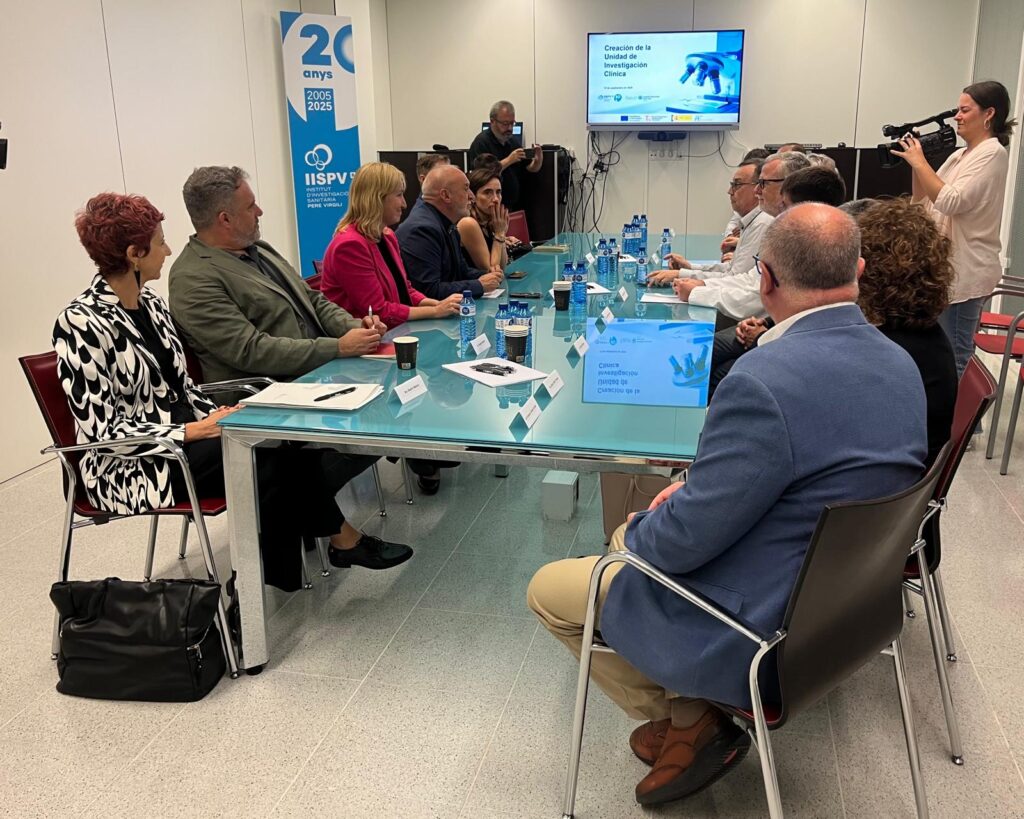
The Mayor of Reus, Sandra Guaita, added that “the amount of funding provided by the State shows that this is a strong project that will have a direct impact on citizens, as it will allow more equal access to medicines—something that used to happen only in large cities.” In the same vein, the Director of IISPV, Joan Vendrell, explained that “this Clinical Research Unit will serve the entire province and benefit 850,000 people, from university hospitals to regional hospitals in different health areas.” He also said: “We would even like pharmacies to help share information about the studies being carried out, so that people can learn about them and, if they wish, take part.”
Since the funding was announced in early 2025, the tendering process for the construction work has already started, and part of the necessary equipment has been ordered. In terms of staff, six people have already joined IISPV to work directly with the CRU: two data managers, one administrative staff member, one radiology technician, and two nurses. The unit is expected to be operational by the end of 2026.
The IISPV is organising the activity for Saturday 20 September at 12 p.m. at the Racó de la Palma in Reus, and it will be led by researchers from local research centres
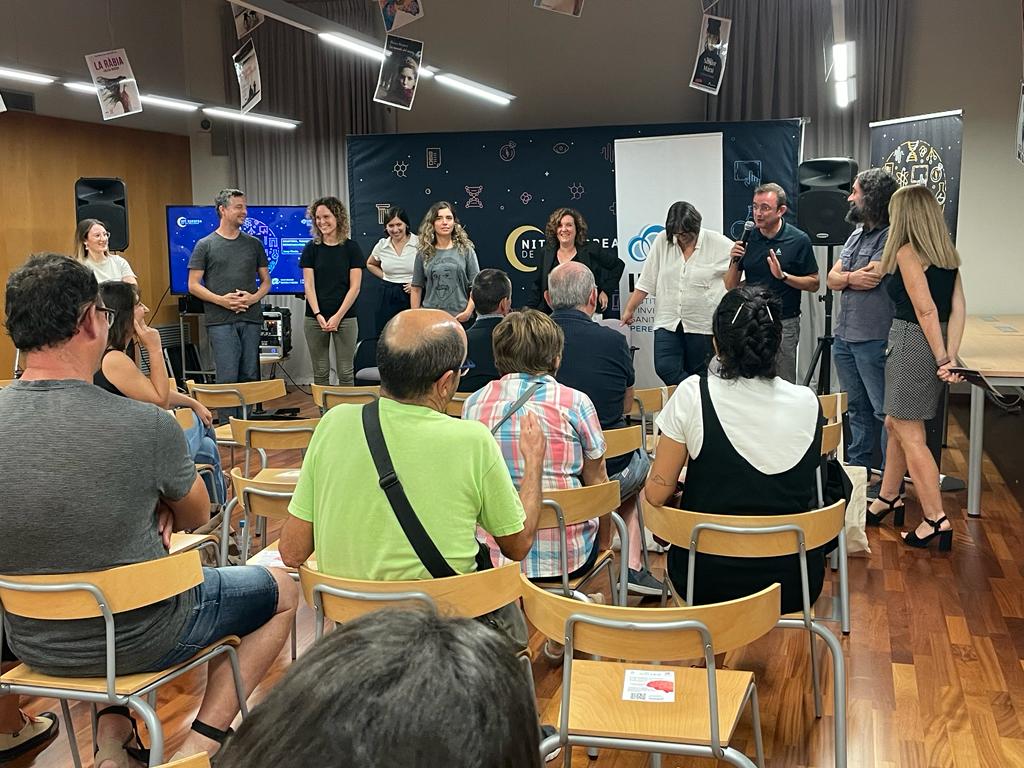
On Saturday 20 September at 12 p.m., the Racó de la Palma in Reus will host the science microtalks, an activity included in the European Researchers’ Night. The goal is to bring scientific research closer to the public in a friendly, accessible and engaging way.
The event is organised by the Institut d’Investigació Sanitària Pere Virgili (IISPV), in collaboration with the Universitat Rovira i Virgili (URV) and other research centres in the region. Researchers from different fields will share, in 10-minute talks, the latest advances in health, sustainability, energy and well-being.
Topics will include the effects of microplastics on the intestine, the role of the Mediterranean diet during pregnancy, patient safety in critical situations, responsible use of antibiotics, psychiatric disorders, and key ideas for a fair and sustainable energy transition.
The speakers will be:
Celia Uroz Mas – Efectes dels microplàstics en el nostre intestí
Sergi Danés – Del sol al combustible: energia neta per a una societat sostenible
Sara Bernardo Castro – Dieta mediterrània durant l’embaràs: modelant el desenvolupament cerebral i psicològic dels fills
Ruth Tortosa Alted – La transferència de cures en malaltia crítica: un repte de seguretat del paciente
Marta Llorens Fons – Antibiòtics: manipula’ls amb cura!
Sergi Saladié Gil – Bases per a una transició energètica justa i sostenible
Elisabet Vilella Cuadrada – Trastorns psiquiàtrics: factors de risc i factors protectors
L’activitat s’adreça a un públic general, amb un format distès i accessible, i forma part del conjunt d’actes que el IISPV impulsa per fomentar la cultura científica i connectar la recerca amb la societat.
Around twenty researchers from the institute opened the biomedical research laboratories at the Hospital Universitari Sant Joan de Reus to the public
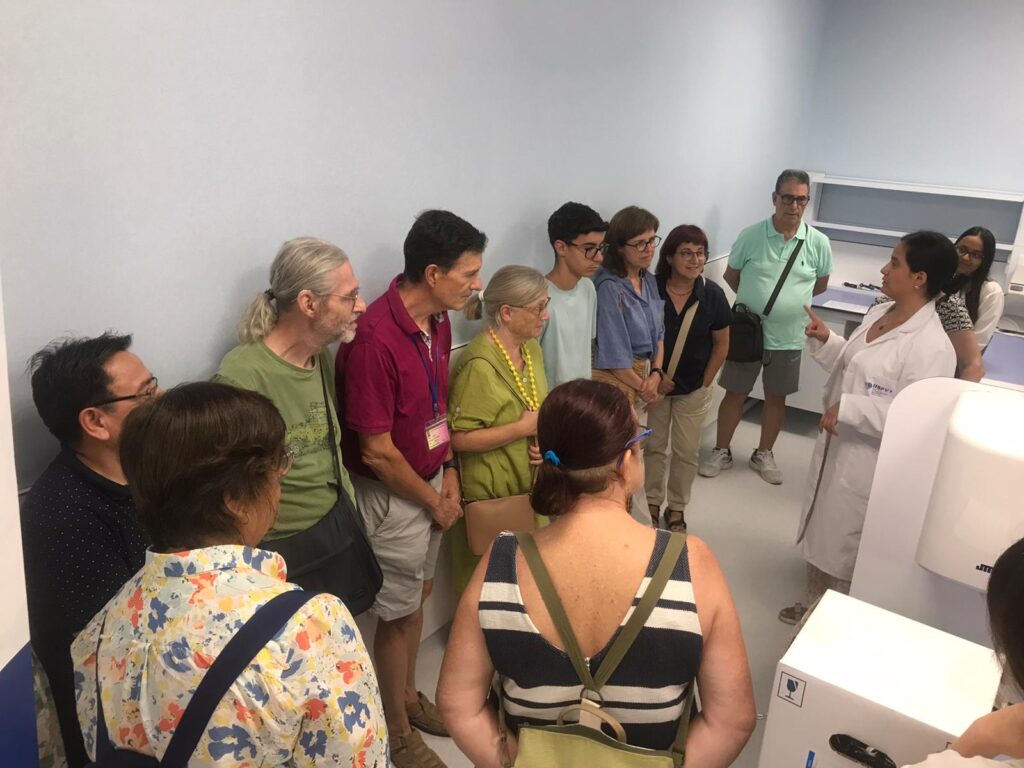
On Tuesday, July 22nd in the morning, the Institut d’Investigació Sanitària Pere Virgili (IISPV) held the first of several commemorative activities to mark its 20th anniversary: an open day. Around twenty researchers from the institute welcomed members of the public into the biomedical research laboratories located at the Hospital Universitari Sant Joan de Reus. The event included two sessions, which gathered nearly forty participants.
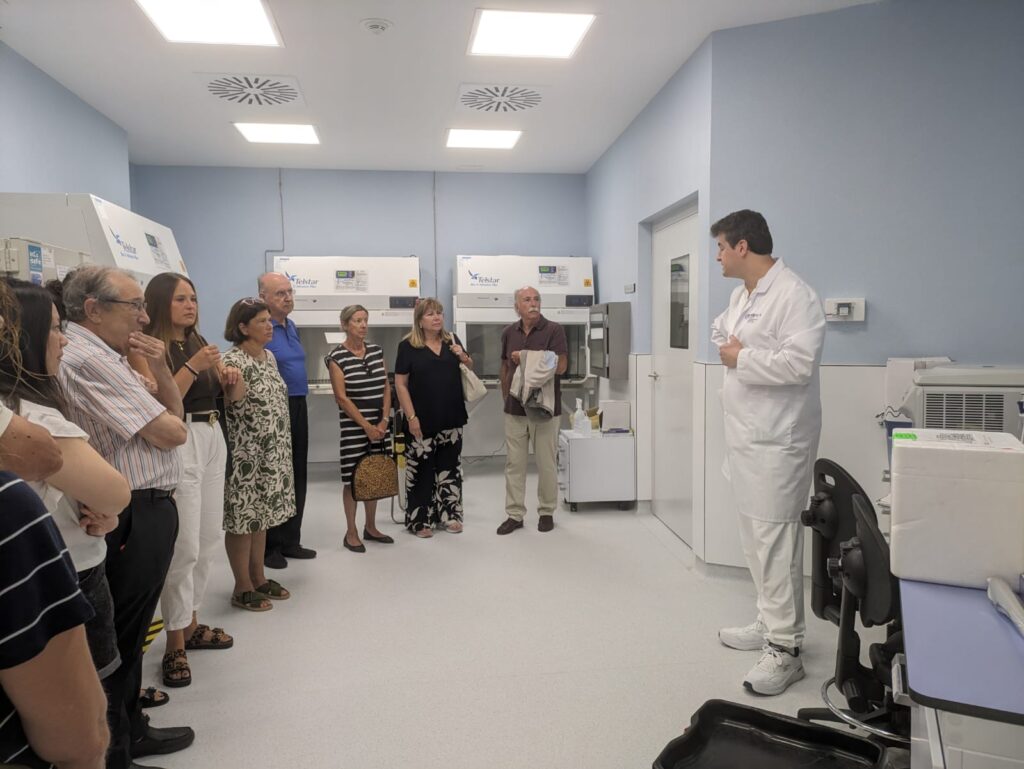
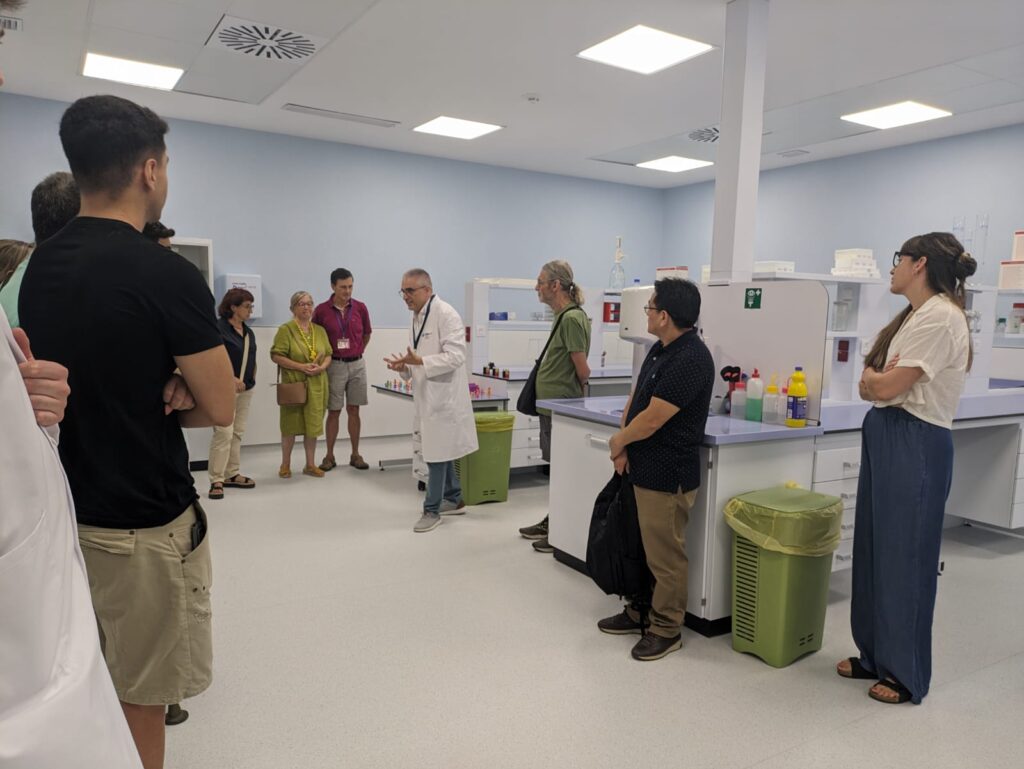
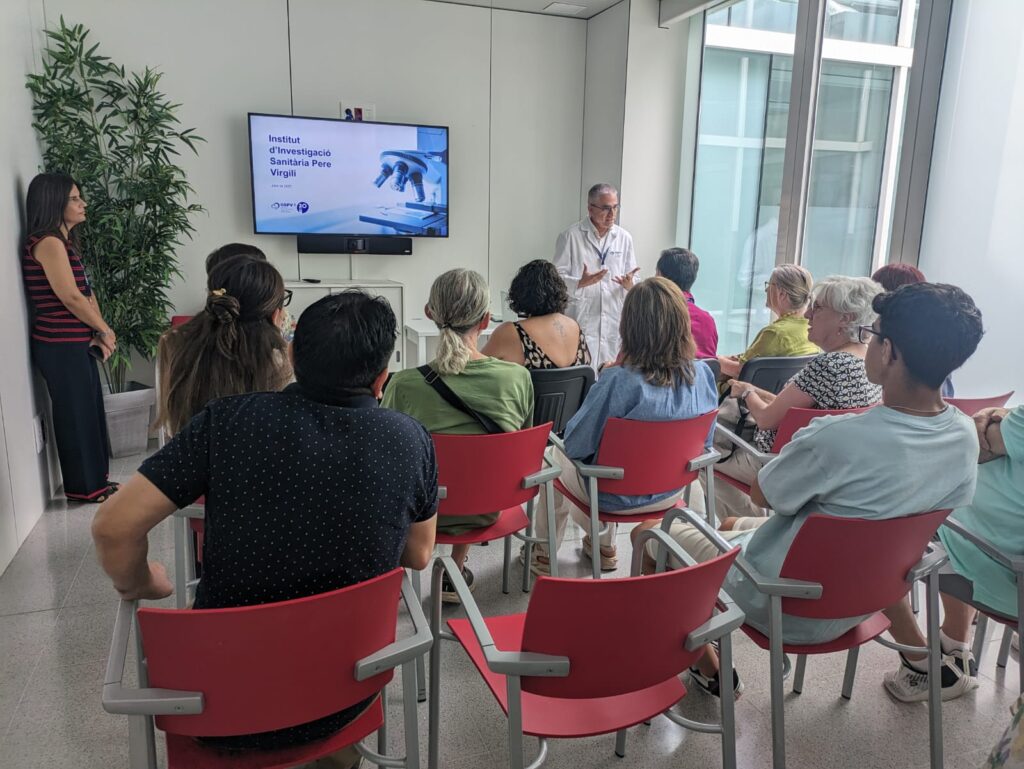
According to Lluís Gallart, director of the IISPV Biobank and head of platforms, “Visits like this help us show the work we do in the laboratories, which contributes to better diagnosis and treatment of diseases. These open days are also a way to recognize the work carried out over the past two decades by professionals dedicated to research through the IISPV, many of whom are also part of the Hospital Universitari Sant Joan de Reus, Joan XXIII in Tarragona, Verge de la Cinta in Tortosa, Institut Pere Mata and Universitat Rovira i Virgili.”
During the visit, researchers presented some of the current research lines at the IISPV. The tour was divided into eight stations, each led by members of research groups and scientific support platform coordinators.
The agreement foresees the cooperation of the two institutions in the celebration of acts and events that promote healthy habits among citizens.

The Mayor of Reus, Sandra Guaita, and the Director of the Institut d’Investigació Sanitària Pere Virgili (IISPV), Joan Vendrell, have signed a framework protocol to foster collaboration in the fields of healthcare, public health, and health promotion. The agreement emphasises early disease detection and the capacity for a swift and effective response to health emergencies. This is the first formal agreement between the two institutions and includes provisions for joint initiatives and projects to be developed across various departments of the Reus City Council and the IISPV. It also outlines cooperation in organising events aimed at promoting healthy lifestyles among citizens.
In terms of knowledge transfer, the protocol supports the dissemination of scientific output generated by IISPV researchers, including clinical trials, patents, partnership agreements, and the creation of start-ups. It also promotes the organisation of specialised workshops and seminars focused on talent development and employment in the health sector, with the aim of equipping professionals with skills and knowledge aligned with the evolving demands of the labour market. Another key aspect of the agreement is the promotion of research addressing specific societal and industrial challenges, as well as the establishment of strategic alliances to lead transformative sectoral and regional projects, particularly through citizen science initiatives.
The framework protocol establishes a four-year collaboration period, with the possibility of annual extensions for up to an additional four years. It also allows for amendments or termination. A monitoring committee has been created to oversee the implementation of the agreement, ensure compliance, and facilitate the development of specific actions.
The signing of this protocol reaffirms the Reus City Council’s commitment to innovation, science, and technology—a commitment that was recognised last May when Reus was awarded the title of City of Science by the Ministry of Science, Innovation and Universities. In this regard, Mayor Guaita stated: “Science, research, and innovation must be at the heart of public policy as drivers of regional development. This is a key priority in our 2023–2027 Municipal Action Plan. Public administration must foster knowledge generation and management, professional training, and talent attraction, strategically rooted in the local context. This commitment can only be realised through active collaboration with the business community, scientific and academic institutions, and public authorities.
The signing of this protocol also coincides with the 20th anniversary of the IISPV, celebrated throughout 2025. According to the institute’s director, “It is vital to know that local institutions support us. Building strong ties with the region enables us to translate scientific knowledge into real solutions for patients and society. This is the core mission of our institute and the researchers who work through the IISPV”.